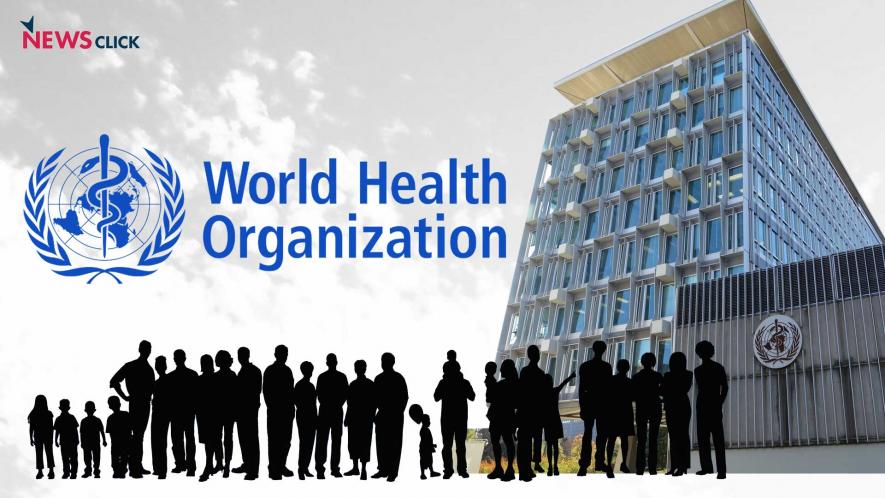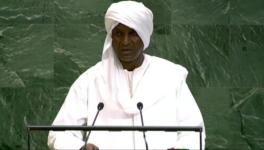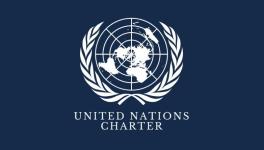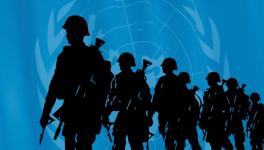General Program of Work as Strategic Priority For World Health Organization

The article below is part of the ‘WHO-Watch’ program which is an effort of the People’s Health Movement WHO-Watch program. The program works towards democratising global governance for health and involving young activists in following the governing body meetings of the World Health Organisation -- the Executive Board meeting in January and the World Health Assembly in May -- every year.
The General Programme of Work 13 (GPW) provides a framework for the WHO’s work in the coming five years. The new GPW, it is claimed, will strengthen the role of WHO in global health governance, enable the organisation to address its decade long financial crisis, and contribute to the realisation of the Sustainable Development Goals (SDGs). The areas of ‘strategic importance’ were identified through online public consultations in an attempt to make the drafting of the programme more transparent and participatory. Countries members of WHO were to adopt the draft programme during the 71st World Health Assembly (WHA, under agenda item no. 11.1).
In the discussion, one of the priority was the issue of funding of WHO programs. Most of the country delegations supported the idea of flexible funding and multisectoral collaborations, for instance Denmark, Norway, Tanzania, Nigeria, Turkey. In the same context, follow up on FENSA (Framework of Engagement with Non-State Actors) was also mentioned by India, though it was not clear what their expectation was. The 69th session of the WHA adopted FENSA as an overall policy for WHO’ engagement with ‘non-State actors’ (i.e NGOs, private sector entities, philanthropic foundations, and academic institutions) while protecting its work from conflicts of interest. For an analysis of the limitations of FENSA, please see here.
On the other hand, Bolivia strongly asserted that WHO should retain its normative role and avoid conflicts of interest. Bolivia underscored that strengthening public health systems is the responsibility of governments, and not private entities. In contrast, the European Union stressed the importance of collaboration with partners such as GAVI (Global Alliance for Vaccine and Immunization), the World Bank and other UN agencies. Japan, Russia and USA stressed the cooperation with and convening of partners, including bilateral and multilateral institutions and private entities to strengthen WHO’s leadership.
Considering that WHO’s cooperation with private donors has intensified over the past years, and has a significant role in defining which of the planned activities get implemented, the wish of some countries to rely even more on such actors definitely gives food for thought. Given that even Director General Tedros emphasized that “FENSA is not a fence”, we’re yet to see how cooperation with private companies and agencies is going to be regulated. In its Statement, PHM highlighted that the WHO should address the fact that many such private entities, especially TNCs, have a negative influence on people’s health, and FENSA's ability to effectively manage conflicts of interest is untested (see PHM statement here).
Further, countries complemented the report and its “triple billion” goal, appreciating the focus on SDGs and Universal Health Coverage (UHC), such as Algeria, Thailand, India, Sweden, Sri Lanka, and Tanzania. GAVI was overwhelmingly supportive of the draft programme and welcomed the recognition of immunisation as a strong platform for primary care “on which UHC needs to be built”.
Several countries commended the consultation process, for its inclusive and transparent nature. There was strong support for the strategic shift towards work at the country level, through country and regional offices of WHO. Several countries called for improvements, as well as a better understanding of WHO’s role at country level in terms of provision of resources and collaborations with other UN agencies and programs. Iceland, on behalf of Norway, UK, Iceland, Australia, Denmark asked for a report at the next Executive Board meeting of WHO (EB144) focused on the role of WHO country offices.
It was repeatedly remarked that the GPW cannot be achieved without the political will and cooperation from all countries. Many highlighted the importance of developing an impact framework to ensure that GPW is operational. Concerns regarding implementation of the GPW were also brought to limelight. For instance, the UK commented that the impact framework does neither quantify WHO’s contribution to strengthening health systems around the world, nor does it account for the source of the required 14% budget increase. Qatar, on the other hand, called for a reduced number of priorities to ensure better implementation. Colombia, Zambia and Brazil all mentioned the need for access to medicines to become a core priority.
The above article is compiled with contributions from; Linda Markova (UK), Kriti Shukla (India), Natasha Matthews (UK), Simrin Kafle (Nepal), Dan Owalla (Kenya), Emmanuel Tangumonkem (Cameroon), Alba Lop Girones (Spain), Matheus Falco (Brazil), Sophie Gepp (Germany/UK), Sherif Olanrewaju (Nigeria), Andrew Harmer (UK) and Ana Vračar (Croatia).
This article is part of a series. Read Part 1 here.
Part 2 here.
Part 4 here.
Part 5 here.
Get the latest reports & analysis with people's perspective on Protests, movements & deep analytical videos, discussions of the current affairs in your Telegram app. Subscribe to NewsClick's Telegram channel & get Real-Time updates on stories, as they get published on our website.
























